Preparation
Terra Nova
The project is inspired by the idea of trying to simplify and create understanding on a broader level regarding the issues of climate change within the author’s field of design. How can design help us understand the relevance of acting now by visualizing how a potential future might look if action is not taken. Out of many issues that might arise due to climate change the project specifically targets that of desertification.
Desertification if left uncontrolled is expected to force billions of people from the densest areas of the world on the move by 2090. Driving densification of the last livable land to reach unprecedented levels, we want to stay clear of this at all costs as it gambles our survival as a species on this planet. It would lead to the creation of vast inhabitable areas, potential global conflicts, and large-scale segregation.
Leaving little to no room for our ally nature to regenerate would mean the mass extinction of species and potentially life on our planet. To enforce the urgency of action the project steps into the distant future of 2090 to portray how a growing desert would have affected the way we live, the struggles it has brought, and how we are putting all efforts towards assisted regeneration of the planet.
As much as the project is speculative, the scenario builds on data and analytics mapped by scientists and research within the fields of eco-science. As the issue of desertification is an already existing problem. Scientists and inventors are working on ways to counter its growth. Applying inspiration and learnings from biodiverse reforestation work today allowed the author to highlight issues in the current process.
As the scenario was pushed to the extreme so were the problems within the current system. Scalability, cost-effectiveness, and flexibility came up as some of the most prevalent issues. Mobility already plays a great role in distributing the reforestation efforts of today’s work and will come to play an even greater role in future efforts. With technological development and systematic changes come new possibilities for innovation.
The process behind the development consisted of exploring solutions that could hinder desertification whilst simultaneously promoting and assisting in the regeneration of nature.
This involved research into large-scale reforestation development and up-and-coming technologies. Through creative development and ideation grew potential scenarios that resulted in story-driven final visuals.
The result is Terra Nova. A lighter than air propelled solution that allows long term cargo-mobility in barren areas with minimal impact to the environment. The vehicle is multifunctional in the sense that it carries the capabilities of both personal and cargo transport making it a great all-around vehicle.
Terra Nova - Mobility For the Future of the Planet
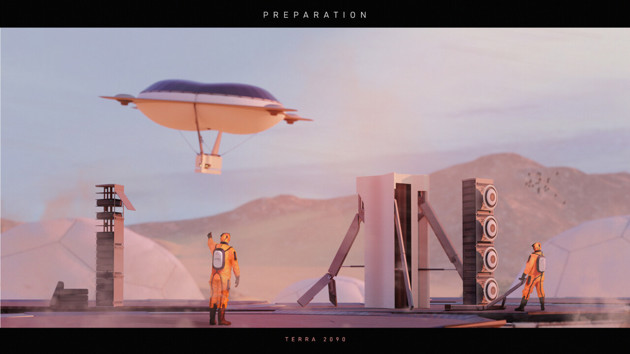
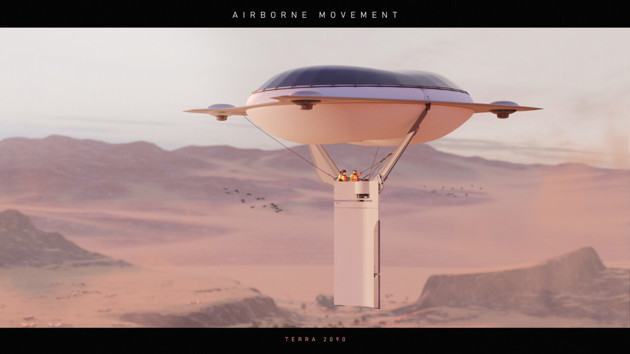
Airborne Movement
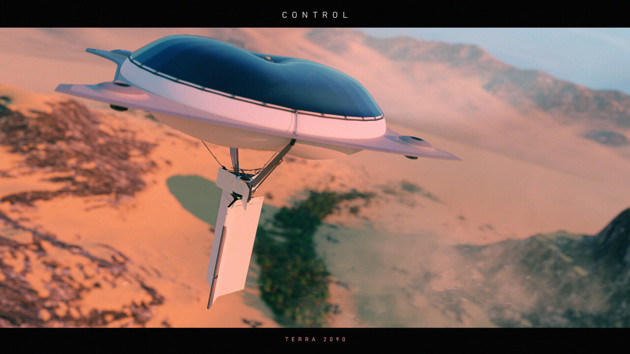
Control
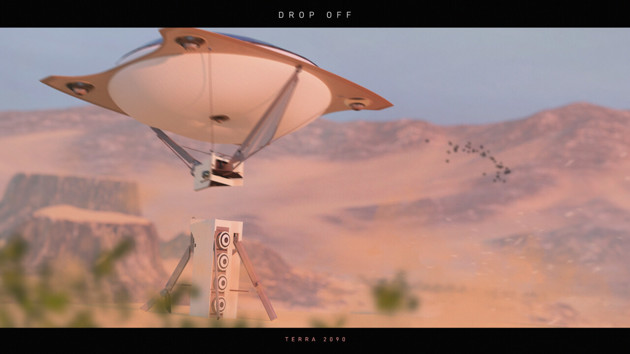
Drop Off
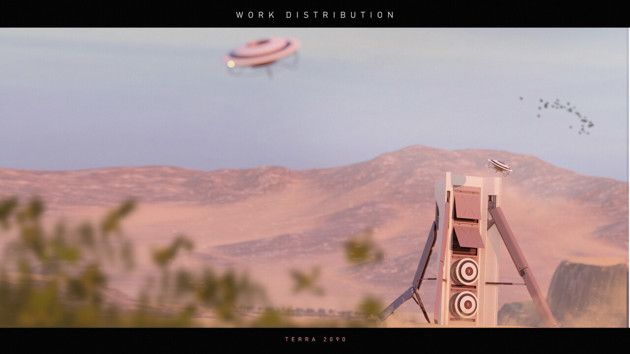
Work Distribution
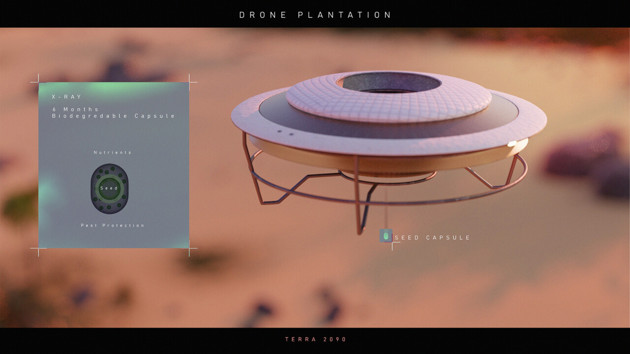
Drone Plantation
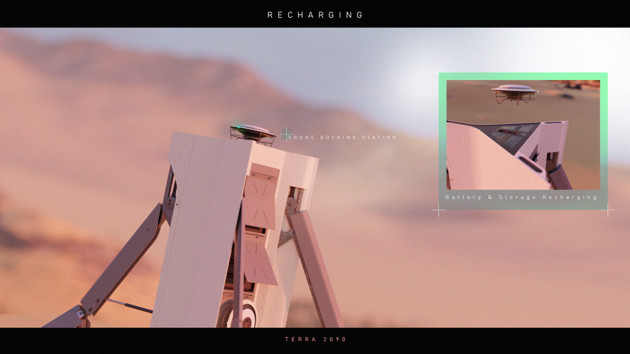
Recharging
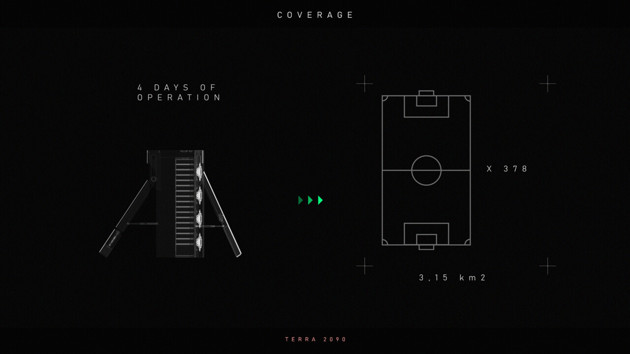
Coverage
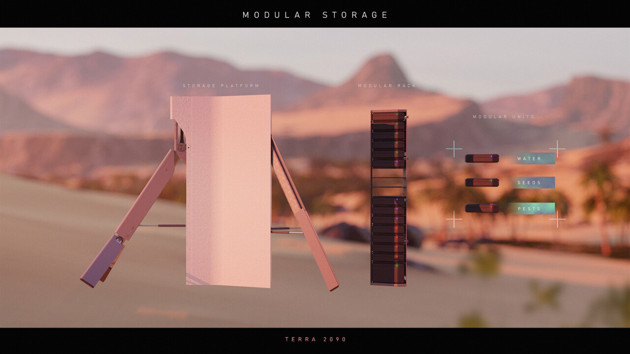
Modular Storage
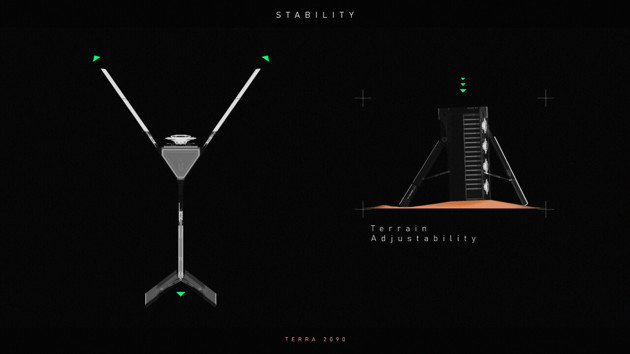
Stability
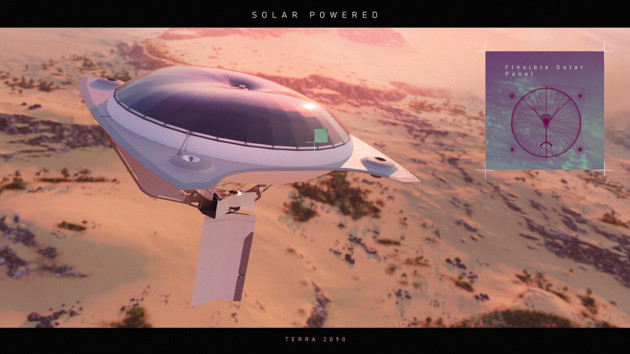
Solar Powered
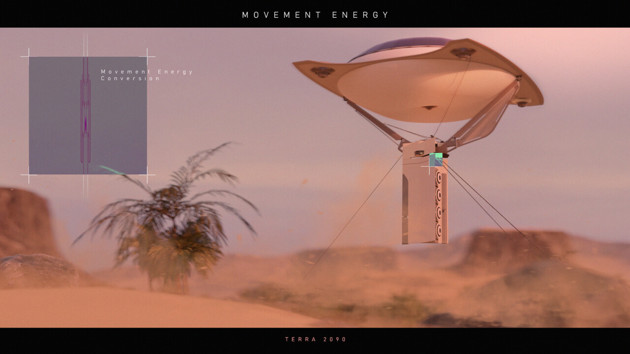
Movement Energy
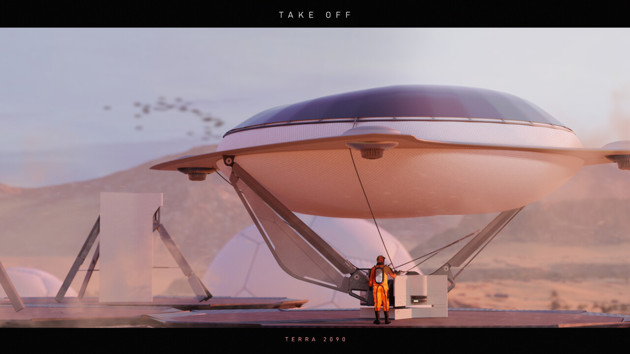
Take Off

Interior
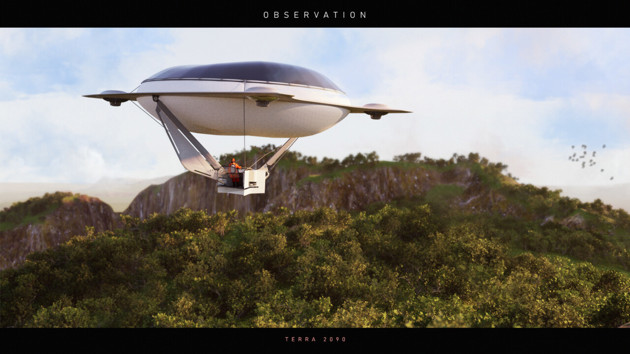
Observation

















